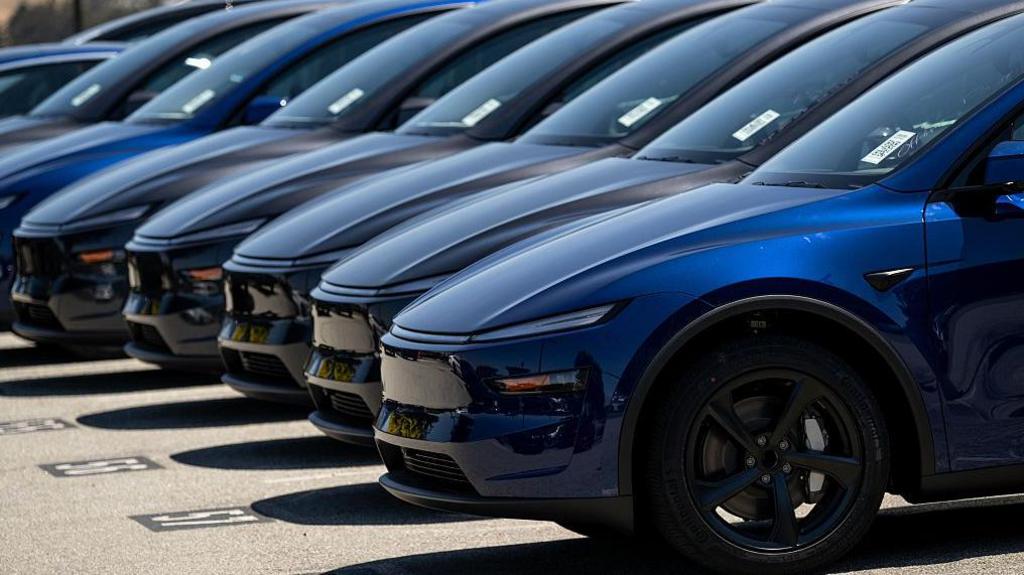Tesla, led by Elon Musk, has reported a 14% decrease in vehicle deliveries for the second quarter, signaling ongoing challenges for the electric vehicle manufacturer.
The company delivered just over 384,000 vehicles between April and June, marking the second consecutive quarterly decline.
Tesla faces intensifying competition from rivals, including China’s BYD. Musk’s previous role as a government efficiency advisor during the Trump administration has also been cited as a contributing factor to the declining figures.
While Musk has since departed from that position, he has engaged in public disagreements with former U.S. President Donald Trump regarding a significant spending bill proposed by the White House.
In response, Trump suggested potentially reducing subsidies for Musk’s companies or even initiating deportation proceedings.
Trump indicated that the Department of Government Efficiency – informally known as Doge – could be utilized to scrutinize the billionaire’s business ventures.
“Elon may get more subsidy than any human being in history, by far,” Trump stated on social media Tuesday. “Perhaps we should have DOGE take a good, hard, look at this? BIG MONEY TO BE SAVED!!!”
“I am literally saying CUT IT ALL. Now,” Musk responded.
Trump has attributed Musk’s opposition to the spending bill to a provision that eliminates incentives for purchasing electric vehicles.
“He’s upset that he’s losing his EV mandate, he’s very upset, he could lose a lot more than that, I can tell you that,” Trump told reporters on Tuesday.
Although the quarterly deliveries metric is closely monitored by investors, some analysts have downplayed the significance of the figures.
“The good news: that ~14% should mark the bottom,” wrote Deepwater Asset Management’s Gene Munster on Musk’s social media platform X. “I have September down 10% and December flat.”
Munster suggested that uncertainty surrounding the U.S. EV tax credit could stimulate near-term sales as consumers rush to make purchases before its expiration.
Tesla’s initiative to introduce robotaxis, which began in Austin, Texas, last month amidst some uncertainty, could prove to be a crucial factor, he noted.
“Over the next two years, I think investors will be fine with flat deliveries as long as autonomy shows measurable progress,” Munster added.
Sign up for our Tech Decoded newsletter to follow the world’s top tech stories and trends. Outside the UK? Sign up here.

